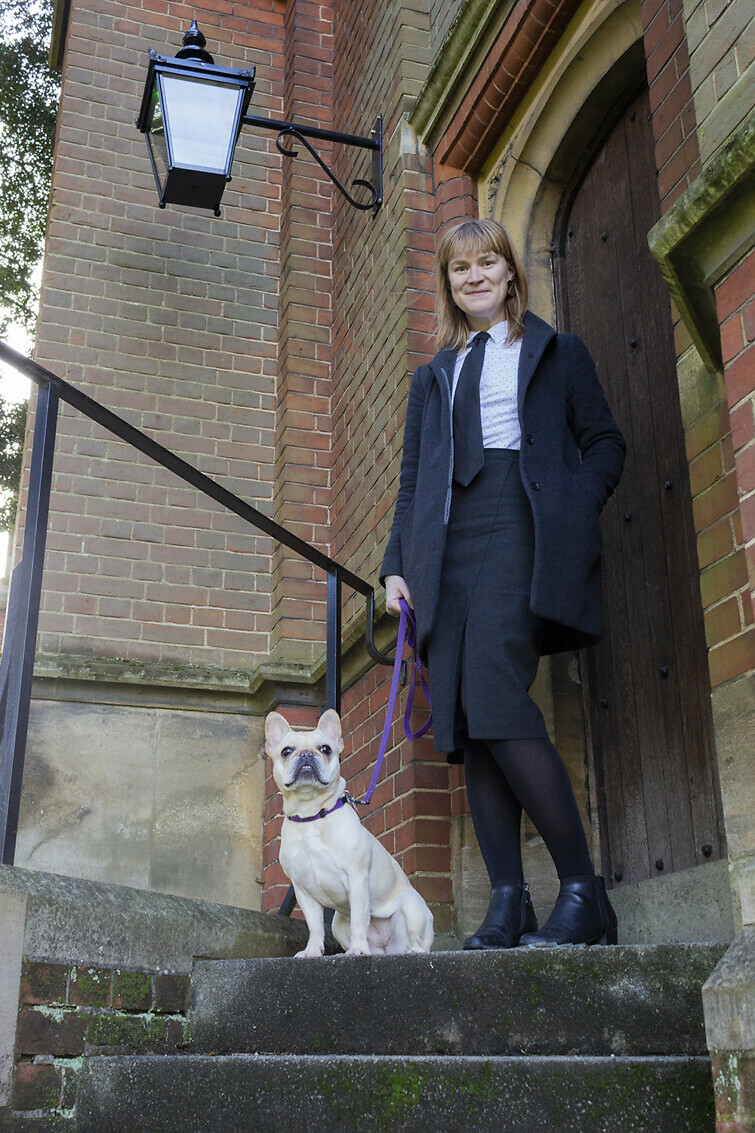Ariane Hanemaayer is Associate Professor of Sociology at Brandon University, Canada. She was a Visiting Fellow at CRASSH from 2019 to 2021.
Q: Ariane, What is your book ‘Artificial Intelligence and Its Discontents: Critiques from the Social Sciences and Humanities’ about?
The book is an edited collection that brings together multiple disciplines that are currently involved in questioning and critiquing the integration of AI in our daily lives.
Q: What drew you to the subject and what do you find particularly interesting about it?
The idea for the book came about serendipitously. When I was doing the research for The Impossible Clinic (2019) I started to accumulate a folder of trends in the 20th-century medical literature that defined decision-making problems in the clinic in terms of a human limitation, the difficulty of holding vast amounts of information in one’s mind all at once, as a possible source of medical error. These ‘saved-for-later’ articles recommended that the use of new computer technologies could solve these issues. Because TIC was not focused on the inclusion of technology in the clinic, this theme was not discussed. The possibility of exploring it again later happened while I was at CRASSH as a visiting fellow. I received a circulated Call for Papers from Shunryu Garvey, then at Stanford, for a special issue he was editing for Interdisciplinary Science Reviews on the theme of AI and AI criticism. I proposed to explore those questions in medicine, with the plan to dive into that folder-left-for-later. Shunryu received over 60 proposed papers for that special collection, and I reached out to him to see if he’d like to collaboratively edit another publication with the papers that could not be included in his special issue. He assisted with the initial crafting of the proposal, and I later took over as lead editor. We invited authors who had sent proposals to his issue, and soon we had confirmed 12 chapters. His special issue appeared in early 2021. I also invited Stefanie Ullmann from CRASSH to contribute after I saw her present some of her work on AI language processing and training.
What I find particularly interesting about AI, and as I propose in the introduction to the book, is that there is a multi-disciplinary, though distinct field of AI questioning and resistance that merits its own unification. There is a long history of critique both from within and outside the field of AI development. Reconnecting these approaches will foster not only greater dialogue amidst the social sciences, humanities and programmers, but also concert efforts to propose new political futures alongside the advancement and infusion of AI technology in our daily lives. The book represents one venue where so many unique perspectives are brought together.

Ariane Hanemaayer during her fellowship at CRASSH. Photo credit Judith Weik
Q: Around which themes did you decide to structure the book, and to what end?
The essays are organised around five themes that are not mutually exclusive: Posthumanism, Human Values, Media and Language, Governance, and Resistance. Each theme captures the specific perspectives and tactics that are being mobilised or challenged by the authors with respect to AI development and/or infusion.
One of the strengths of the collection is its geographical breadth, as the book showcases a diverse range of authors from across the world as well as a breadth of approaches from across disciplines.
Q: In your view, wherein lies the book’s main contribution?
Generally, the book’s main contribution is highlighting the diverse insights gained from a social and cultural analysis of AI while also challenging the foundations upon which AI is said to be needed and necessary in our changing world. In addition to the in-depth case studies of AI development and implementation, the book also provides readers with a range of conceptual and analytic tools for not only questioning AI but also presenting alternatives to its current trajectory across nations and sites of practice.
Q: What would readers be surprised to learn about in your book?
So many things! When I started this project, my knowledge about AI was specific to clinical and diagnostic technologies, their history and institutionalisation in medicine. By editing this book, I was exposed to a wide range of projects, not just the critical perspectives, but also their case studies. Readers will enjoy learning about automated justice in China, Covid-19 Health apps in India, the role of AI in-app upgrades and the internet, as well as AI’s use in labour and robotics – even nanorobotics. I also found a number of interesting synergies among disciplines, such as the way bioethics has informed AI frameworks, the way that AI challenges our understandings of labour or child-adult relations, the human tendency to anthropomorphise neural networks, the use of language and Google translate, and many more. This was a truly exciting collection to edit as I learned a great deal while also having the chance to elevate and advance the field of AI critique.
- ‘Artificial Intelligence and Its Discontents: Critiques from the Social Sciences and Humanities‘ was published by Palgrave Macmillan in 2022.

